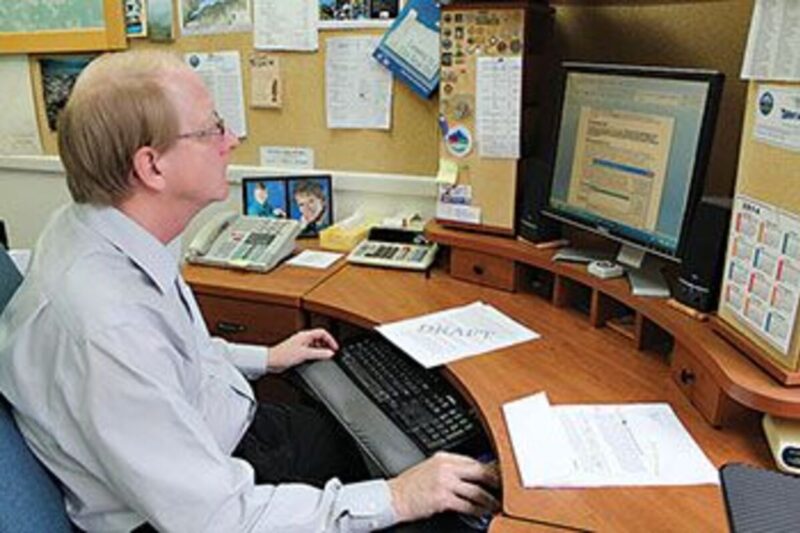Sean C. Morgan
The City of Sweet Home will need to budget money this year to upgrade its aging computer system, which is primarily based on Windows XP.
School District 55 will continue gradually replacing the operating system and computers.
Microsoft will stop supporting Windows XP on April 8. This means Microsoft will no longer provide security updates or technical support for the operating system. That will leave computers using Windows XP vulnerable to exploitation by malware.
Consequently, both the city and the School District are switching to Windows 7, the successor to Windows Vista.
Microsoft released Windows XP in 2001. It followed Windows 2000 and Windows ME. Windows Vista succeeded XP in 2007.
The district finds funding for the upgrades in its annual technology fund, said District 55 Supt. Don Schrader. “We started doing it quite awhile ago, but now that there’s no support, we’re stepping it up.”
The district has XP machines “all over the place,” he said. If a teacher has an older computer, it’s running XP.
Schrader said he was in a kindergarten class last week in which students were using them for educational activities and games. He said he expects those kinds of machines will continue to use XP.
Where computer use is more intense, such as the three high school computer labs, machines have already been replaced.
Schrader said switch-overs will be made as district’s information technology employees work on a computer.
“Any time they touch a machine, they’ll make the change,” he said.
XP is a big component of the city’s computer system, said City Manager Craig Martin.
“Essentially, we built the whole system as it’s been integrated over the years on XP and XP Pro, including our servers,” he said.
At the time, XP was the desired platform, Martin said. It was the most stable and forgiving, according to the city’s computer consultants. The city has been in a Windows- and DOS-based environment for many years.
Security requirements for financial and personal information have increased over the years, Martin said, and the city must maintain that information on machines that receive regular security updates.
The city has sensitive computers in the finance, billing, court and police areas of its network, and they’ll receive priority.
“We’re not going to do it all at once,” Martin said. “We’ve identified which computer terminals are the most critical ones.”
For other computers, the immediate solution is temporarily locking them out of sensitive areas of the network, he said. His Windows XP computer is one example.
In some cases, the city will upgrade the operating system, while in others, it will replace the machine, he said.





